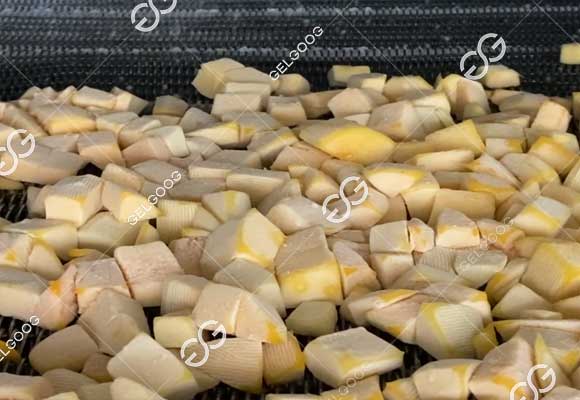

In the food industry, choosing the right frozen method directly affects product quality, production line efficiency and enterprise cost control.

For companies that need industrial-grade production lines, understanding the difference between IQF and frozen is not only a technical choice, but also the key to determining market competitiveness.
This article will deeply analyze the differences between these two frozen methods from multiple perspectives such as technical principles, advantage comparison, and application scenarios to help you make wise decisions.

IQF (Individual Quick freezing), or "single quick freezing technology", is a technology that freezes food ingredients quickly and individually.
It achieves complete preservation of cell structure by quickly passing each single fruit, vegetable, meat, seafood, etc. through the ice crystal formation zone in a very short time.
In contrast, ordinary frozen (usually refers to traditional refrigeration or slow frozen) has a slow frozen speed, which often causes food to agglomerate, lose nutrients, and even lose taste.


If your company pursues high quality, low loss and high efficiency, IQF is undoubtedly the better choice.

When choosing whether to adopt the IQF frozen process, the following factors should be considered:
We provide a one-stop solution from small experimental lines to large IQF industrial quick-frozen production lines, supporting customized configuration to help you achieve both high efficiency and high quality.

The difference between IQF and frozen is the key to the transformation of future food factories. By comparison, it can be seen that the difference between IQF and frozen is not only in technical principles, but also in production efficiency, product quality and market competitiveness.
Want to learn more about whether IQF quick-frozen equipment matches your product?
Welcome to leave a message or contact our engineering consultant directly to get a free solution evaluation and quotation.
Help you seize new opportunities in the cold chain economy and win at the starting line!